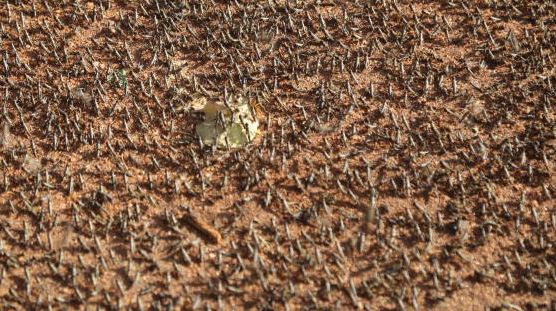×
The Standard e-Paper
Kenya’s Boldest Voice

Coronavirus-linked flight restrictions are hampering efforts to wipe out locust swarms on the verge of devastating crops in East Africa.
In a statement, the United Nations Food and Agriculture Organisation (FAO) said the desert locust upsurge continues to remain alarming, particularly in Ethiopia, Kenya and Somalia, where it poses an unprecedented threat to food security and livelihoods.